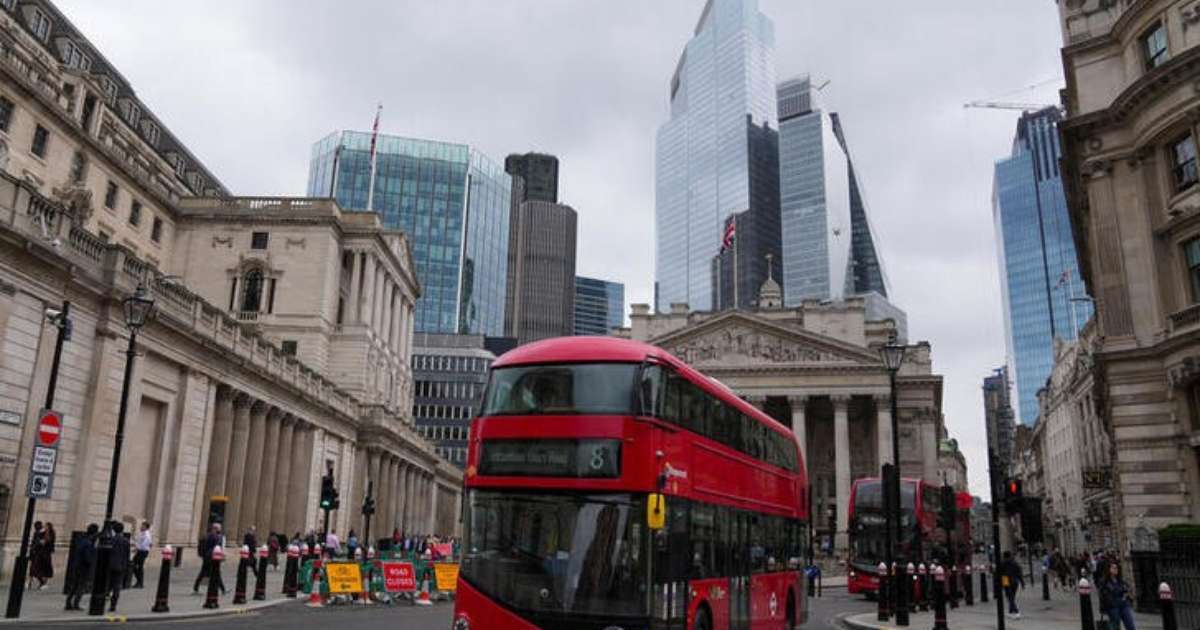The UK economy grew faster than expected in May, giving Prime Minister Keir Starmer’s new government some boost but raising doubts about whether the Bank of England will cut interest rates next month.
Economic output rose 0.4% in May, the Office for National Statistics said, following a 0.2% rise in April. A Reuters poll of economists showed expectations for another monthly increase of 0.2%.
The strength of the recovery may prevent the Bank of England from starting to cut interest rates from August 1, the next scheduled monetary policy announcement date. This week, three policymakers emphasized the strength of domestic price pressures.
The odds of a rate cut within three weeks fell below 50% in futures markets, down from more than 50% on Wednesday.
In May, there was a broad-based increase in economic output, with the services, manufacturing and construction sectors growing, the latter up 1.9% month-on-month, driven by housing construction.
The figures represent an early boost to the new Labor government, which has set a target of achieving the fastest growth in the Group of Seven advanced economies on a sustainable basis.
“The government may benefit from an improving economic outlook, with the economic recovery stronger than most forecasts,” says Ashley Webb.
The British economy appears to have emerged from a period of low growth, at least for now. Excluding the recovery from the Covid-19 pandemic, output rose 1.5% year-to-date, marking its best five months since the start of 2017.
On Thursday, Goldman Sachs raised its growth forecast for 2024 to 1.2% from 1.1%.
However, the long-term outlook remains weak, with the economy at the end of 2019 only 2.7% larger than its pre-pandemic level.
According to the latest quarterly data, only Germany fared worse after the pandemic.
In the three months to May, the British economy expanded 0.9%, compared with the consensus forecast for a 0.7% expansion, the strongest reading since the three months to January 2022.
The Bank of England said last month that the economy would grow by 0.5% in the second quarter — now much lower.
“These GDP numbers could undercut an interest rate cut in August, giving rate-setters worried about underlying price pressures enough confidence in the UK’s economic recovery to further delay policy easing,” Mr Suren said. ICAEW Economics in Accounting System.
Britain’s ONS data showed the UK’s overall trade deficit, excluding precious metals, narrowed to 3.2 billion pounds ($4.1 billion) in May from 4.7 billion pounds in April.
But exports of goods to the EU have fallen to their lowest level since January 2022, when Brexit customs controls were introduced, and are in line with levels seen in the late 1990s.
Starmer has said he wants to reduce trade frictions with the EU but won’t agree to join the bloc’s common market.

“Internet addiction in terminals. Award-winning beer expert. Travel expert. General analyst.”








More Stories
Oil falls for 4th consecutive session on US stocks and conflict in Middle East – Money Times
Youth development in UK poultry farming is a new initiative in international production
Robert F. Kennedy Jr. considers abandoning campaign and endorsing Trump